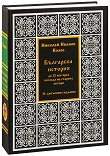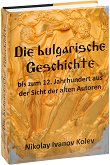

| Доставка за | СофияИзбери друго населено място | |
| Цена за доставка | До автомат на BOX NOW : 1.53 € / 2.99 лв. До офис на Еконт: 2.90 € / 5.67 лв. До адрес: 3.06 € / 5.98 лв. | |
| Опция преглед | Да, при всяка доставка до адрес или офис. | |
| Дати за доставка | 05‑03‑2026 г. или 06‑03‑2026 г. | |
| Експресна доставка | До офис на Еконт за утре Услугата "експресна доставка" до офис се прилага за поръчки направени до 18 часа в работен ден с доставка за следващия работен ден на Еконт. Услугата може да се избере на 2-ра стъпка от създаването на поръчка, ако всички продукти в кошницата са с възможност за експресна доставка! До автомат BOX NOW за днес вечерта Услугата "експресна доставка" до автомат се прилага за поръчки направени до 16:30 часа в работен ден с доставка за вечерта на същия работен ден. Услугата може да се избере на 2-ра стъпка от създаването на поръчка, ако всички продукти в кошницата са с възможност за експресна доставка! | |
Основни параметри:  | ||
| Продукт | #335-108 | |
| Вид | Книга | |
| Наличност | Да, на склад в store.bg Физически наличен в основния склад на store.bg | |
| Издадена | 2025 г. | |
| Издателство | Гута-Н | |
| Категории | ||
| Език | Английски | |
| Корица | Твърда | |
| Страници | 964 | |
| Размери | 21.60 / 30.20 / 5.20 cm | |
| Тегло | 2.615 kg | |
| EAN | 9783000481017 | |
| ISBN | 9783000481017 | |
|
Bulgarian History up to the 12th century through the view of the ancient authorsNikolay Ivanov Kolev Доставка:

Основни параметри:

|
|
Ако искаш да си първият дал мнение за тази книга, направи го сега! |
Важна информация! Мненията, които най-добре описват книгата, ще бъдат видими при всяко посещение на страницата. За да видиш всички останали мнения, натисни бутона "Покажи всички мнения". Без предупреждение ще бъдат изтривани коментари с обидно, расистко, клеветническо или друго съдържание, което нарушава добрия тон. |
| |||||||
| |||||||
| |||||||
| |||||||
| |||||||
| |||||||
| |||||||
|

|
Българска история до XII век през погледа на старите автори Николай Иванов Колев |
||
|
Цена: 86.92 € / 170.00 лв.
|
|||
 Възможна е експресна доставка на следващ работен ден, до офис на Еконт.  Продуктът е представен с видео материали  Продуктът е представен с вътрешни страници |
|||

|
Die bulgarische Geschichte - bis zum 12. Jahrhundert aus der Sicht der alten Autoren Nikolay Ivanov Kolev |
||
|
Цена: 153.39 € / 300.00 лв.
|
|||
 Възможна е експресна доставка на следващ работен ден, до офис на Еконт.  Продуктът е представен с видео материали |
|||
|
Кубрат Николай Иванов Колев |
|||
|
Цена: 7.67 € / 15.00 лв.
|
|||
 Възможна е експресна доставка на следващ работен ден, до офис на Еконт.  Продуктът е представен с видео материали  Продуктът е представен с вътрешни страници |
|||
|
Препирните по народността на българите в що се състоят и защо се водят Ганчо Ценов |
|||
|
Цена: 5.11 € / 9.99 лв.
|
|||
  Възможна е експресна доставка на следващ работен ден, до офис на Еконт.  Продуктът е представен с вътрешни страници |
|||
|
Авари и българи: аваро-български съюз Д-р Николай Иванов Колев |
|||
|
Цена: 23.01 € / 45.00 лв.
|
|||
 Възможна е експресна доставка на следващ работен ден, до офис на Еконт.  Продуктът е представен с вътрешни страници |
|||
|
Критически изследвания към историята на българите Юрий Иванович Венелин |
|||
|
Цена: 13.80 € / 26.99 лв.
|
|||
  Възможна е експресна доставка на следващ работен ден, до офис на Еконт.  Продуктът е представен с вътрешни страници |
|||
|
История во кратце о болгарском народе словенском Спиридон Габровски |
|||
|
Цена: 7.16 € / 14.00 лв.
|
|||
 Възможна е експресна доставка на следващ работен ден, до офис на Еконт. |
|||
|
|
|
© 1999 - 2026 store.bg всички права запазени - Общи условия | Политика за личните данни Използваните в представянето на книгата "Bulgarian History up to the 12th century through the view of the ancient authors - Nikolay Ivanov Kolev" текстови, графични и други материали са собственост на носителите на авторските им права. Всяко копиране и репродуциране на информация, представена в този сайт, е равносилно на безусловно приемане на общите условия и определените в тях лицензни условия за ползване. |